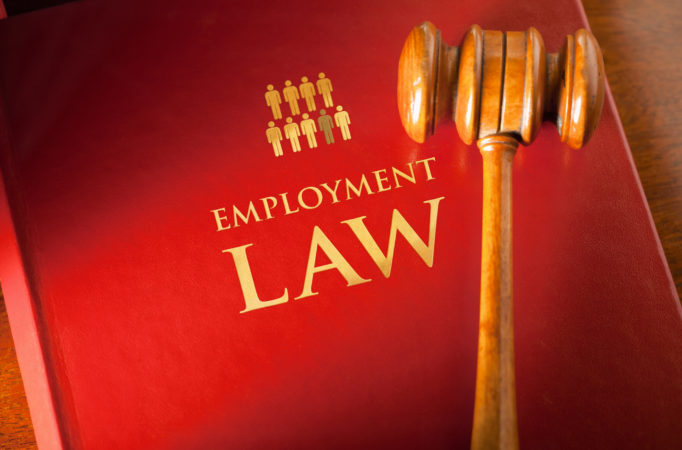Employment & Labor Law
Employees of Gentleman’s Club Stripped of Coverage For Lawsuits Stemming From Altercation Outside of Club
In Navigators Ins. Co. v. Oasis on Essington Ltd., No. 11-7074, 2014 U.S. Dist. LEXIS 104461 (E.D. Pa. July 31, 2014) (Jones, II, J.), the U.S. District Court for the Eastern District of Pennsylvania held that several employees of a Philadelphia gentleman’s club were not covered under the club’s commercial general liability insurance policy for two lawsuits stemming from an altercation in the parking lot of the club that resulted in the death of one man and serious injuries to another. The gentleman’s club itself and its owners were found to be entitled to a defense under a supplemental assault and battery provision within the policy.
On October 16, 2009, James Koons, Jr. (“Koons”) and George Foreacre (“Foreacre”) were patrons at Oasis Gentleman’s Club (“Oasis”) in Philadelphia. After being ejected from the building and into the parking lot by Oasis’ bouncers, a number of Oasis employees, including managers and bouncers, continued a physical altercation with Koons and Foreacre and continued beating Koons and Foreacre. As a result of his injuries, Koons died on November 2, 2009. Foreacre sustained serious injuries, including a fractured sternum, fractures of the lumbar spine and other head, neck and back injuries. Two complaints were filed against Oasis and a number of its employees as a result of the incident in the Court of Common Pleas of Philadelphia, Pennsylvania.
Navigators Insurance Company (“Navigators”) issued a commercial general liability policy (the “Policy”) to Oasis for the period encompassing the October 16, 2009 incident. The Policy stated that those insured under the Policy were: 1) Oasis; 2) Members of Oasis, but only with respect to the conduct of Oasis’ business; 3) Managers of Oasis, but only with respect to their duties as managers; and 4) Employees of Oasis, but only within the scope of their employment with Oasis or while performing duties related to the conduct of Oasis’ business. The Policy provided coverage in the event that an insured became legally obligated to pay damages as a result of bodily harm. The Policy also provided coverage for damages an insured would become legally obligated to pay due to injuries resulting from the insured selling, serving or furnishing any alcoholic beverage. The Policy further included a supplemental provision providing for limited assault and battery coverage for damages included in the “assault and battery hazard.” However, the Policy also contained an assault and battery exclusion that provided, in part, that the Policy did not apply to “1) ‘injury’ expected or intended from the standpoint of any insured; or 2) ‘injury’ caused by a person other than the insured, which any insured fails to prevent.”
The court concluded that the six Oasis employees directly involved in the altercation did not qualify as “insured’s” under the terms of the Policy because they were acting outside the scope of their employment at the time of the altercation. Although the complaints in the underlying lawsuits alleged that the employees were acting within the scope of their authority and employment at the time of the altercation, the court found that the underlying complaints did not allege that the individuals were acting in a manner for which they were employed. While there duties as managers and bouncers at the club required general use of force, it did not authorize an unprovoked malicious, wanton, intentional and/or reckless attack as alleged in the underlying complaints. The court found that the employees did not serve to maintain order within their employer’s establishment, as Koons and Foreacre had already been removed from the club at the time of the altercation. The conduct of the employees was so outrageous that the court held, as a matter of law, they were acting outside the scope of their employment.
The court further concluded that the altercation described in the underlying complaints did not constitute an “occurrence,” i.e., an accident, within the meaning of the Policy. The court found that a willful and malicious assault was not an accident but, rather, was an intentional tort. Even though the underlying complaints alleged negligence, the court held that the factual allegations supported the conclusion that the actions of the employees was intentional. Therefore, the court held that there was no coverage to the employees, Oasis or Oasis’ owners under the CGL policy.
The court held that the liquor liability coverage provided by the Policy was not implicated because the underlying complaint did not allege facts to support a relationship between an alleged Dram Shop Act violation and the injuries sustained by Koons and Foreacre.
Lastly, the court analyzed whether there was coverage under the supplemental limited assault and battery coverage purchased by Oasis. The court concluded that since Oasis’s employees were acting outside the scope of their employment, they were not insured under the supplemental assault and battery provision. However, the court found that Oasis and its owners were insured under the supplemental assault and battery policy. Thus, the court held that Navigators had a duty to defend Oasis and its owners in the underlying action. The court held that Navigators’ duty to indemnify Oasis and its owners would depend on the outcome of the underlying actions, which had not yet been adjudicated.
About Us
Claims and suits brought against employers by employees are a large part of the cases being handled by the Employment lawyers at Houston Harbaugh. We focus on assisting and counseling our clients to be positioned to avoid claims, and if the claims are brought, to be prepared to defend against them.

Craig M. Brooks - Practice Chair
An employment and labor attorney, Craig primarily represents management, providing advice on how to handle employee issues and actions, as well as defending or pursuing claims in court and before government agencies on matters.
An employment and labor attorney, Craig primarily represents management, providing advice on how to handle employee issues and actions, as well as defending or pursuing claims in court and before government agencies on matters including:
- Employment discrimination claims
- Wage and hour matters
- Sexual and other harassment investigations and claims
- Family and Medical Leave Act
- Wrongful discharge
- Labor/Union matters
- Restrictive covenants
- Affirmative action programs
- Defamation
- Privacy
Craig also represents individuals with advice and pursuing claims arising out of their employment.

